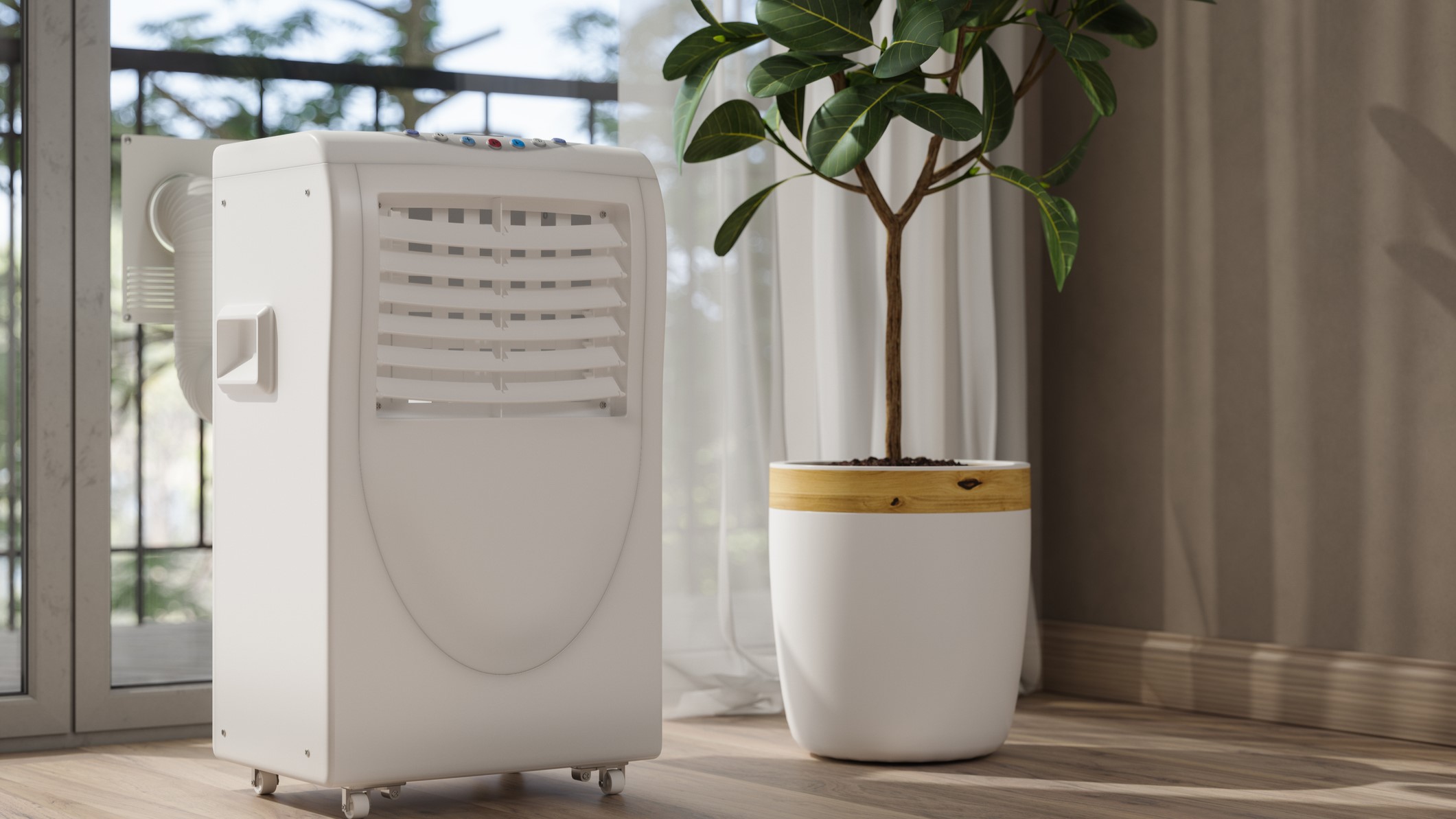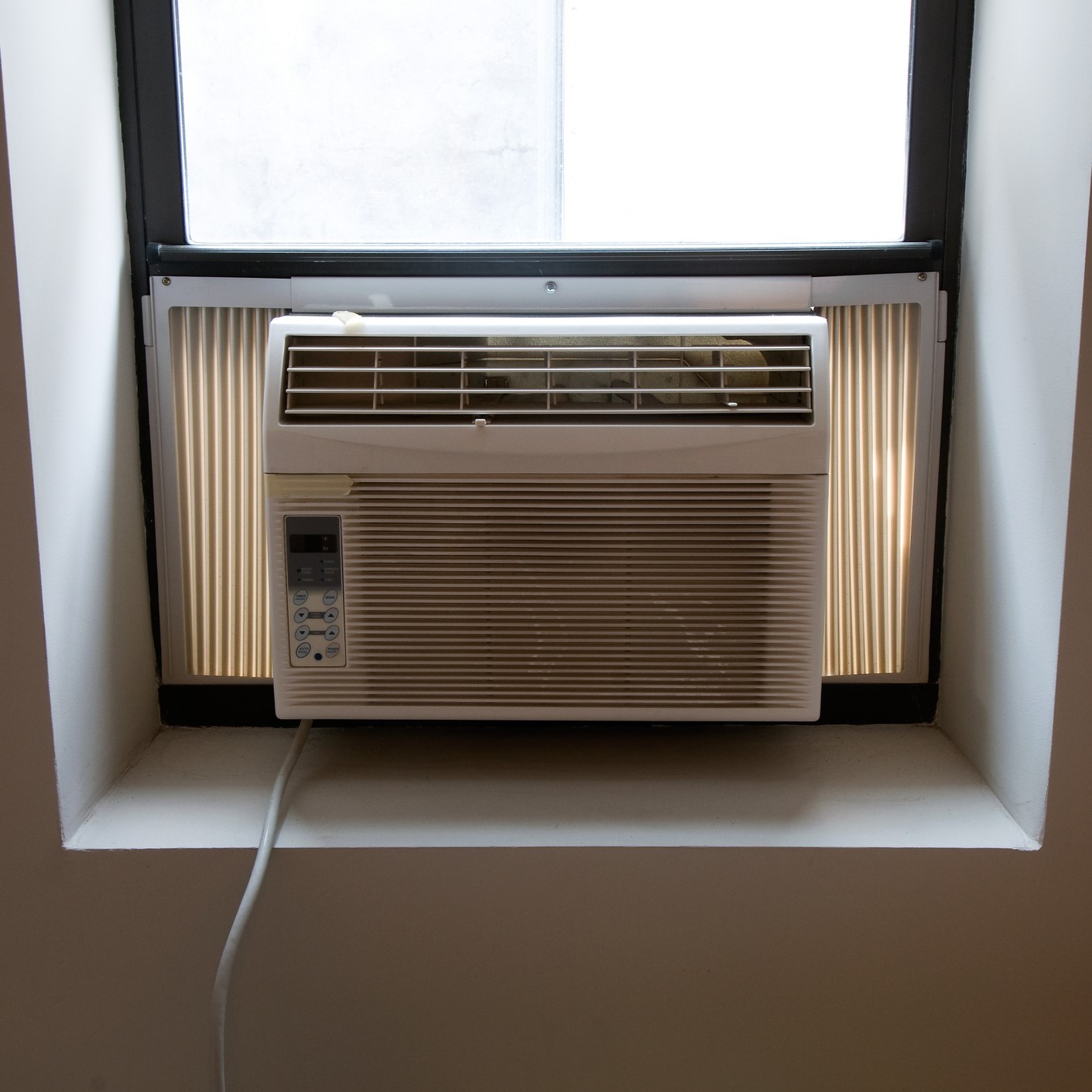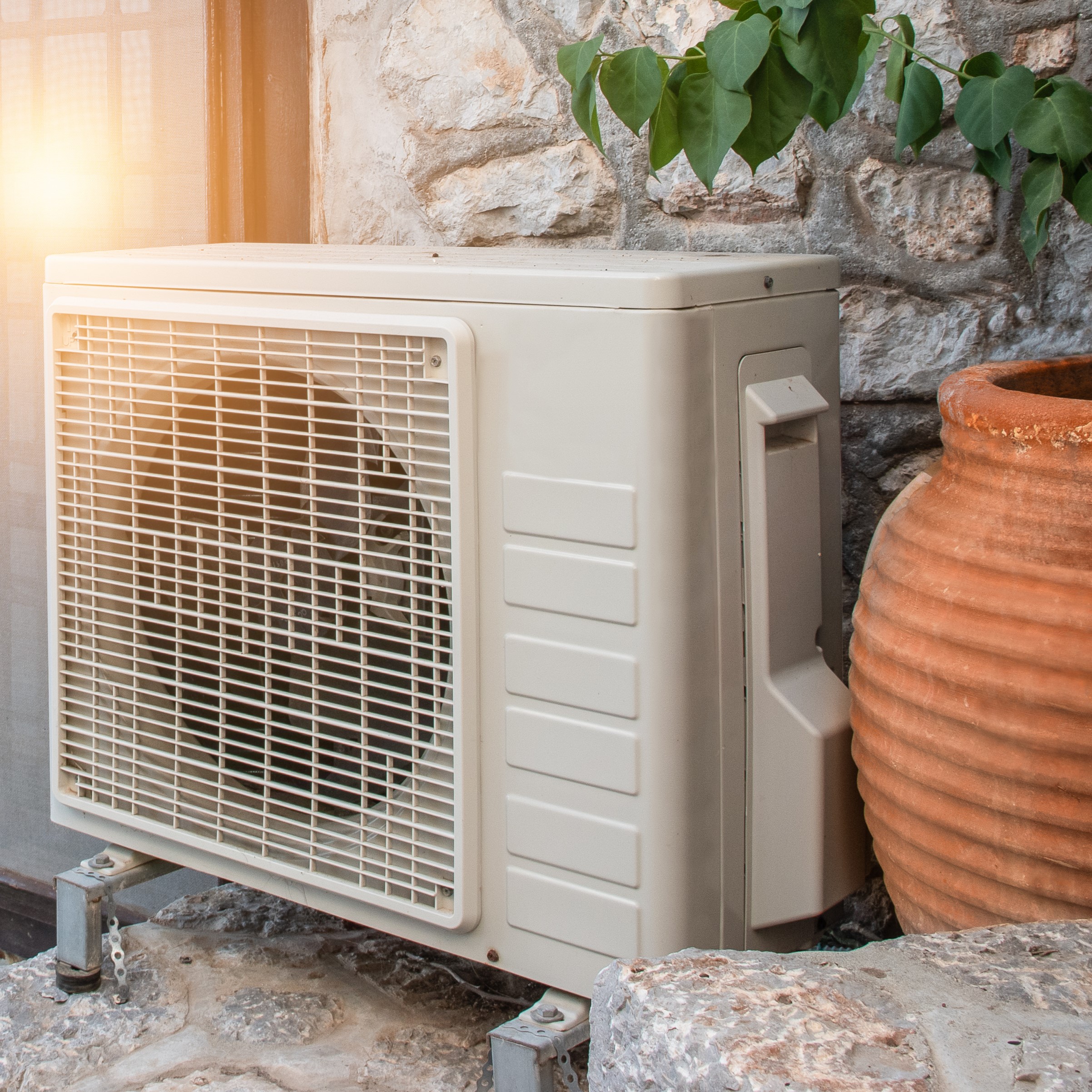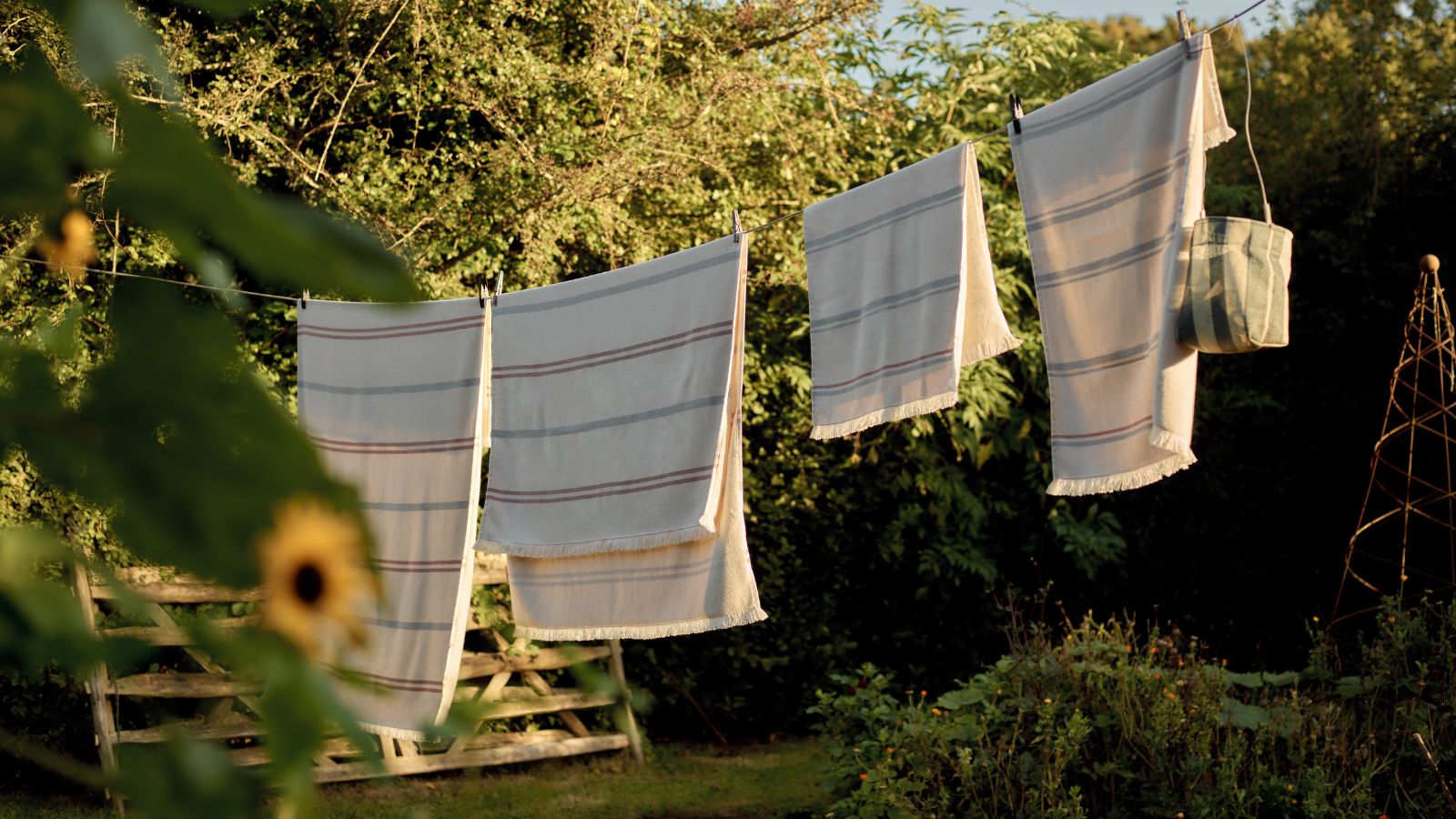Portable ACs vs window ACs – which air conditioner is best?
Are portable air conditioners enough to replace window air conditioners? We compare the two AC types to find out which is best for different homes

Portable ACs are becoming more popular for a reason: they're convenient, easy-to-install, and you can move them anywhere. Among the many air conditioning types, portable units are becoming more of a viable option.
But window ACs have been around for a long time, and work extremely well to help cool down a space. They make use of the window's ventilation properties to provide consistent cooling for the whole home, without demanding too much energy in the process.
There are pros and cons to both portable and window AC units, and it isn't necessarily the case that one is better than the other. These two types of AC systems can cater to different households, and we've spoken with the experts to help you find out which AC is best suited to your space.
Portable ACs vs window ACs
Read on to see the pros and cons of portable air conditioners and window air conditioners, before we come to a verdict on which one is best.

Portable vs window air conditioners: What's the difference?
Window air conditioners are installed directly onto the window frame, with the unit's condenser sticking out of the window. They're fixed in place and don't drain the excess water they capture. Instead, condensation drips down to the pan on the bottom of the unit, where it's then distributed by a fan throwing it against the condenser coils.
Portable air conditioners live on the floor, and have a long hose that connects to an open window frame so that it can be moved from room to room. They vent warm air outside, and will often collect condensation into a drain pan that'll need to be emptied regularly.
Regardless of whether you choose a window or floor AC unit, 'both will need outdoor access for the exhaust tube to expel hot air from the room,' explains Glenn Wiseman from Top Hat Home Comfort Services.
Portable: Pros & cons
'Portable AC units live up to their title and are fairly easy and simple to install,' says Glenn.
Brandon Young, CEO of Payless Power, confirms this: 'They require no installation beyond venting the hot air through a window or door, making them suitable for renters or those who cannot modify their windows.'
It isn't just the installation that makes them more convenient. 'Floor AC units offer greater flexibility and convenience,' Brandon adds, as they can easily be moved from room to room, providing targeted cooling where it's needed.
'They also don't obstruct window views and are generally considered safer since they don't protrude from windows, reducing the risk of accidents or break-ins.'
A window view that's free from the obstruction of an AC unit makes a big difference, particularly in the sunnier months. However, Brad Roberson, president at Aire Serv. says, 'it’s important for homeowners and renters to understand that floor air conditioners do take up floor space so small rooms may be even more cramped.'

It's also worth remembering that many portable floor units 'often have a drain pan for condensation that must be emptied regularly, potentially several times per day during particularly hot and/or humid periods,' says Brad. Other models may use a water tank that you have to regularly fill with ice water.
Floor units are typically more convenient, versatile and take up less space from your window – but they may demand more regular maintenance day-to-day.
Window: Pros & cons
'Window AC units are typically more energy-efficient and cost-effective for cooling larger areas consistently,' says Brandon. This is the main distinction between the two options: portable ACs offer more flexibility, but window ACs are more effective at actually cooling your whole home.
'They are installed directly into the window frame, which allows for a more secure fit and better insulation, reducing energy loss. They are also often more powerful than portable units, making them better suited for cooling large areas,' he adds.
Glenn Wiseman agrees that window ACs are generally more affordable, and are very reasonably priced considering how effective they are. 'The cost per hour is usually well under $1.' This is a huge advantage if you're looking to cool your home on a regular and consistent basis.
'For example, in Ontario, window units can run 12 hours a day in the summertime and only cost the user about $20-$30 a month.'
Window units will drain themselves too, whether that's by distributing the condensation onto the condenser coils or directly to the ground below.
However, window ACs are typically noisier, and will likely demand more maintenance down the line as they're a more permanent system. They're also not the most renter-friendly, and you'll need to think carefully about whether the design will work in harmony with your windows.
Which is best?
'Factors such as the size of the space being cooled, and the availability of a window may determine which one is better. Portable floor units may be more desirable for temporary cooling, whereas larger window units may be needed or wanted by the homeowner or renter to cool space on a more permanent basis,' says Brandon.
Window units aren't always a viable option in certain buildings or areas. But if you own your home, and you're certain you're going to be living there for a while, a window AC will provide cooling that's more consistent, efficient, and effective.
But for renters who are looking for temporary cooling methods. or anybody who might not need a whole-home solution, a portable AC can tackle individual rooms while keeping your windows free from obstruction. Just make sure you have enough floor space to live with one.
We've already compared fans vs air conditioners, to see if you can save money on an AC system – the best fans can do a pretty effective job at cooling down a home these days.
Sign up to the Homes & Gardens newsletter
Design expertise in your inbox – from inspiring decorating ideas and beautiful celebrity homes to practical gardening advice and shopping round-ups.

Dan is the Home Tech Editor for Homes & Gardens, covering all things cleaning, smart home, sound and air treatment across the Solved section. Having worked for Future PLC since July 2023, Dan was previously the Features Editor for Top Ten Reviews and looked after the wide variety of home and outdoor content across the site, but their writing about homes, gardens, tech and products started back in 2021 on brands like BBC Science Focus, YourHomeStyle and Gardens Illustrated.
They have spent more than 200 hours testing and reviewing vacuums for Homes & Gardens, and have even visited Dyson's engineering labs for the full low-down of the ins and outs of our trusty cleaners.
Dan has a BA in Philosophy and an MA in Magazine Journalism. Outside of work, you'll find them at gigs and art galleries, cycling somewhere scenic, or cooking up something good in the kitchen.
-
 Should you dry your clothes outside if you have hayfever? Allergy specialists warn sufferers to steer clear of this 'major trigger'
Should you dry your clothes outside if you have hayfever? Allergy specialists warn sufferers to steer clear of this 'major trigger'Doing so can trigger asthma, coughing, itchy eyes and more
By Sophie Warren-Smith
-
 Lenny Kravitz says design is 'just like music' – and the stunning materials of this bedroom embody this laidback luxe approach
Lenny Kravitz says design is 'just like music' – and the stunning materials of this bedroom embody this laidback luxe approachRich textures and opulent finishes come together in a Los Angeles bedroom designed by the musician – it's ultra-chic, but relaxed
By Sophie Edwards